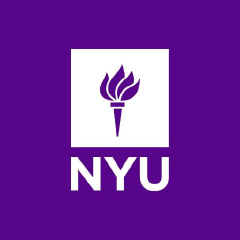Stanford University
Founded 1891.
Funding:
Private
Accreditation:
Western Association of Schools and Colleges
Grades 4
Languages 1
Divisions 7
- Education Graduate School
- Earth Sciences School
- Engineering School
- Business Graduate SchoolFields of study: Business Administration
- Humanities and Sciences SchoolFields of study: Slavic Languages, Latin American Studies, Urban Studies, Portuguese, Italian, American Studies, Applied Physics, Women's Studies, Religious Studies, Archaeology, Art History, Japanese, Spanish, Chinese, Anthropology, German, Linguistics, Theatre, French, Statistics, Public Administration, Music, Fine Arts, Sociology, Communication Studies, Philosophy, Literature, Biology, Political Sciences, Physics, History, Chemistry, Finance, Psychology, Mathematics, English, Computer Science, Economics
- Law School
- Medicine SchoolFields of study: Medicine
Requirements
- Admission details: Graduation from high school or equivalent, and College Board SAT or ACT examination. TOEFL test for foreign students
Short online courses 137
- AI in Healthcare Capstone
- Algorithms: Design and Analysis, Part 1
- Algorithms: Design and Analysis, Part 2
- America's Poverty and Inequality Course
- American Prophet: The Inner Life and Global Vision of Martin Luther King, Jr.
- An Evidence-Based Approach to the Diagnosis and Management of Migraines in Adults in the Primary Care and General Neurology Setting
- Antibiotic Stewardship
- Antimicrobial Stewardship: Improving Clinical Outcomes By Optimization of Antibiotic Practices
- Automata Theory
- COVID-19 Training for Healthcare Workers
- COVID-19 Training for Healthcare Workers
- CSI: ME Case Studies in Medical Errors
- Child Nutrition and Cooking
- Comparative Democratic Development Part I: Conditions of Democracy
- Comparative Democratic Development Part II: Structuring Democracy
- Comparative Equality and Anti-Discrimination Law
- Compilers
- Computer Science 101
- Congenital Hypothyroidism: What Every Primary Care Provider Needs to Know
- Convex Optimization
- Cooking for Busy Healthy People
- Cryptography I
- Cryptography II
- Databases: Advanced Topics in SQL
- Databases: Introduction to Relational Databases
- Databases: Modeling and Theory
- Databases: OLAP and Recursion
- Databases: Relational Databases and SQL
- Databases: Semistructured Data
- Defining the String Quartet II: Beethoven
- Defining the String Quartet: Haydn
- Designing Your Career
- Developing Instructionally-Embedded Performance Assessments for the NGSS Classroom
- Developing Instructionally-Embedded Performance Assessments for the NGSS Classroom: Course 2
- Disaster Medicine Training
- Divide and Conquer, Sorting and Searching, and Randomized Algorithms
- Essentials of Palliative Care
- Essentials of Program Strategy and Evaluation
- Evaluating Student Work from Performance Assessments to Guide NGSS Teaching and Learning: Course 4
- Evaluations of AI Applications in Healthcare
- Focused Bedside TTE and Ultrasound
- Forest Monitoring with CLASlite
- Forest Monitoring with CLASlite
- Fundamentals of Machine Learning for Healthcare
- Game Theory
- Game Theory II: Advanced Applications
- Giving 2.0: The MOOC
- Graph Search, Shortest Paths, and Data Structures
- Greedy Algorithms, Minimum Spanning Trees, and Dynamic Programming
- HBV, HCV-ийн талаар ойлголттой болох нь
- Health Across the Gender Spectrum
- Health Across the Gender Spectrum
- How Software Ate Finance
- How Technology is Shaping Democracy and the 2020 Election
- How To Taper Patients Off Of Chronic Opioid Therapy
- How You Say It Matters: A Toolkit for Improving Communications About Academic Standing
- How to Learn Math - For Students
- How to Learn Math: For Students
- Hypertension in Primary Care – Improving Control and Reducing Risk
- Identifying Early Signs of Psychosis in Adolescents and Young Adults
- Identifying and Responding to Developmental Delay in Young Children
- International Women's Health and Human Rights
- International Women's Health and Human Rights
- Interprofessional Education for 21st Century Care
- Introduction To Food & Health
- Introduction to Clinical Data
- Introduction to Food and Our Environment
- Introduction to Haptics
- Introduction to Healthcare
- Introduction to Logic
- Introduction to Mathematical Thinking
- Introduction to Probability Management
- Introduction to Statistics
- Introduction to Systematic Reviews
- Introduction to the Natural Capital Project Approach
- Introduction to the Natural Capital project approach
- Key points of project strategy and evaluation
- Know HBV And HCV
- Know hepatitis B
- Language, Proof and Logic
- Living at the Nuclear Brink
- Love as a Force for Social Justice
- Machine Learning
- Mining Massive Datasets
- Molecular Foundations of Medicine
- Musculoskeletal Primer for the Non-Orthopedist
- Nano @ Stanford
- Neuromuscular Monitoring Course
- Odyssey Planning
- Organizational Analysis
- Palliative Care Always Capstone Course
- Partnering with the Public and Patients in Medical Research
- Performance Assessment in the NGSS Classroom: Course 1
- Performance Assessment in the NGSS Classroom: Implications for Practice
- Prescription Drug Misuse and Addiction: Compassionate Care for a Complex Problem
- Presentation and Management of Pediatric Acute-Onset Neuropsychiatric Syndrome (PANS)
- Principles of Economics
- Probabilistic Graphical Models 1: Representation
- Probabilistic Graphical Models 2: Inference
- Probabilistic Graphical Models 3: Learning
- Quantum Mechanics for Scientists and Engineers 1
- Quantum Mechanics for Scientists and Engineers 2
- R Programming Fundamentals
- Rebuilding Our Relationship with Food
- Reservoir Geomechanics
- SafetyQuest: Level Four - Mastering QI
- SafetyQuest: Level One - QI Basics
- SafetyQuest: Level Three - Implementing QI
- SafetyQuest: Level Two - Moving Beyond QI Basics
- Semantics of First-Order Logic
- Shortest Paths Revisited, NP-Complete Problems and What To Do About Them
- Simulating Success
- Social and Economic Networks: Models and Analysis
- Stanford Introduction to Food and Health
- Stanford's Short Course on Breastfeeding
- Statistical Learning
- Staying Fit
- Stories of Infection
- Supporting Families and Caregivers
- Symptom Management in Palliative Care
- The New World of Arnold Schönberg's Piano Music
- The Threat of Nuclear Terrorism
- Thermodynamics and Phase Equilibria
- Thinking Critically Series: Interpreting Screening Trials
- Thinking Critically: Interpreting Randomized Clinical Trials
- To Prescribe or Not To Prescribe? Antibiotics and Outpatient Infections
- Transitions in Care from Survivorship to Hospice
- Unconscious Bias in Medicine
- Unconventional Reservoir Geomechanics
- Understanding Einstein: The Special Theory of Relativity
- Understanding Hepatitis B And C
- Using Student Work To Strengthen Performance Assessments for NGSS: Course 3
- What Every Provider Should Know: Clinical Fundamentals
- What Every Provider Should Know: High Risk Chief Complaints
- Writing in the Sciences
- Your Body Inside and Out: Using Exercise Physiology to Slow Aging
- Your Body in the World: Adapting to Your Next Big Adventure



